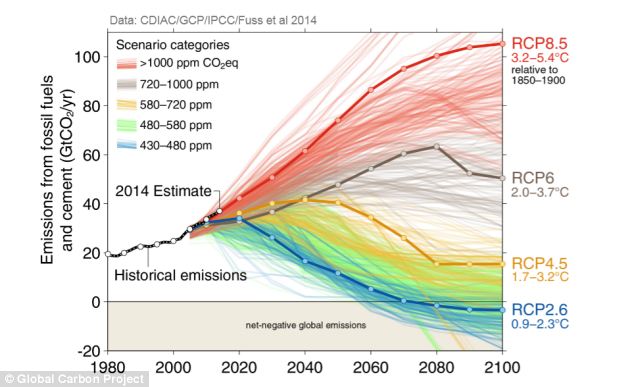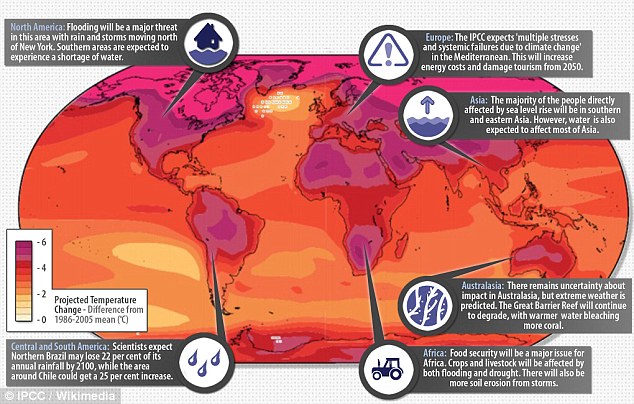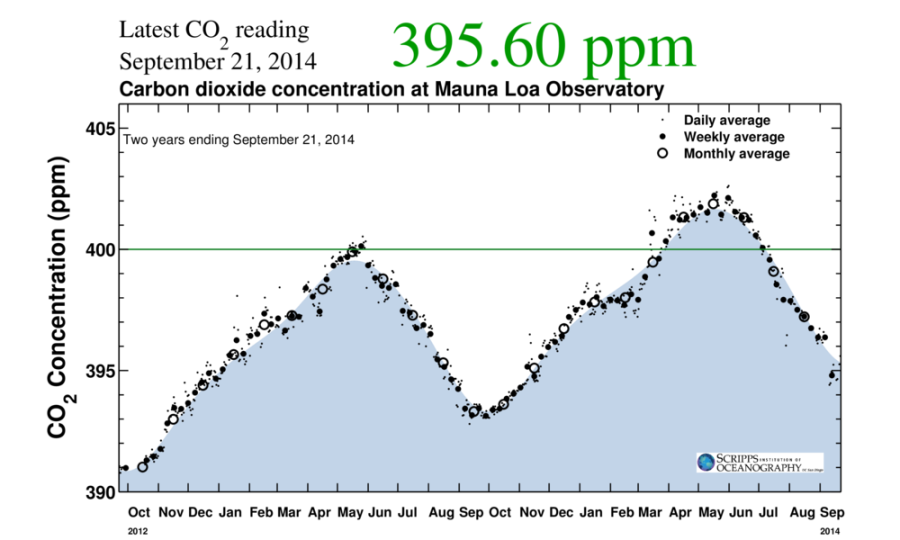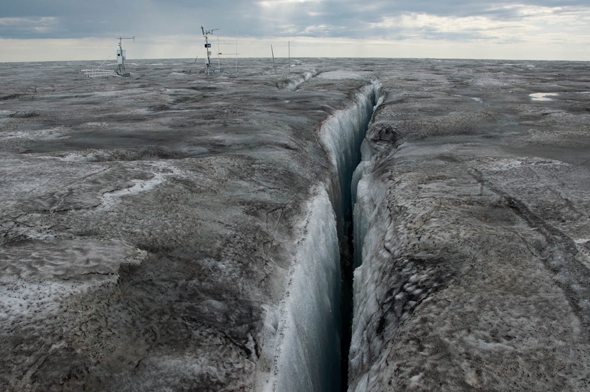Krugman lashes out
"its a frustrating mess"
-Jimi Hendrix
Which side are you on?
- Pete Seeger
Greetings
About a week ago, Paul Krugman put out a piece on climate. Good for him ! Unfortunately he included a section denouncing the de-growth movement and the Post Carbon Institute, as "prophets of climate despair". I suppose its understandable. After mall it is pretty frustrating. And things aren't likely to change in a hurry.
As Dave Roberts points out in a recent Grist article, despite the "awesome", and "thrilling" march in New York, the chnaces of the US adopting a carbon tax, or any other reasonable response, is pretty much nil.. The reason? Gerrymandering has made the House of Representatives bullet proof. It will remain in Republican hands for the foreseeable future. See e.g "Why the Democrats can't win the House". In those solidly red districts, climate change is not on the agenda - protest or no protest.
"As long as climate sanity is defined as heresy in the epistemologically vacuum-sealed Fox bubble, no conservative lawmaker will touch it with a 10-foot pole. It doesn’t matter if you get a million or 10 million people marching in the streets — as long as you don’t get any of the resentful white guys who vote Rs into office, Republican reps won’t care. To see all those unions and brown people and professors and feminists and queers gathered in one place, shouting for an international treaty, just confirms their worst fears.
On the China front, Harvard professor, and author of 3 IPCC reports, Robert Stavins, notes in a New York Times editorial:
"Similarly, in China, which leads the world in carbon emissions at 29 percent of the total, the prospect in the near term for a meaningful climate policy appears dim, because of the country’s predominant focus on economic growth.
"China may achieve its goal of reducing the carbon intensity of its economy (the ratio of carbon dioxide emissions per unit of output) by 45 percent below its 2005 level by 2020. But the country is growing so fast that its coal consumption and greenhouse gas emissions are expected to continue to increase. China is expected to add the equivalent of a new 500-megawatt coal-fired electric plant every 10 days for the next decade, according to projections by the United States government."
So the last thing Krugaman needs to hear from the Post Carbon Institute that there are other problems Unfortunaletly, solving climate change is not just a political problem. Its an energy problem. A build out of non carbon energy devices is a good idea, but it is not that simple in a energy constrained world. It will be expensive, and we will have to give up other things in order to accomplish it. Something has to give.
Krugman appears to believe that solving climate change is both (?) "cheap and free". The only ones who will suffer will be the fossil fuel companies. Utility rates,and energy costs will not rise. GDP will not fall. We will be able to continue to have unlimited growth.
Anyone who disagrees with that view , he asserts is giving "aide and comfort" "to the anti environment right"
"... climate despair produces some odd bedfellows: Koch-fueled insistence that emission limits would kill economic growth is echoed by some who see this as an argument not against climate action, but against growth. You can find this attitude in the mostly European “degrowth” movement, or in American groups like the Post Carbon Institute; I’ve encountered claims that saving the planet requires an end to growth at left-leaning meetings on “rethinking economics.” To be fair, anti-growth environmentalism is a marginal position even on the left, but it’s widespread enough to call out nonetheless.
As Hienberg notes a few problems with Krugmans' views (below) and says
"To be clear, we at Post Carbon Institute advocate massively deploying renewable energy and putting a price on carbon. If humanity has any hope for the future, there is simply no other option. But we just don’t see how this can be achieved without: 1) raising the cost of energy and 2) leading to an increase in greenhouse gas emissions during the renewables build-out, unless other parts of the economy are allowed to contract. When it comes to energy, there is no free lunch."
Greer has an interesting take on this whole controversy. Why does Krugman care what PCI thinks? Greer suggests that the fact that Krugman attacks PCI's position is itself a warning sign. In his piece , he states:
"When a significant media figure uses one of the world’s major newspapers of record to lash out at a particular band of economic heretics by name, on the other hand, we’ve reached the kind of behavior that only happens, historically speaking, when crunch time is very, very close. Given that we’ve also got a wildly overvalued stock market, falling commodity prices, and a great many other symptoms of drastic economic trouble bearing down on us right now, not to mention the inevitable unraveling of the fracking bubble, there’s a definite chance that the next month or two could see the start of a really spectacular financial crash.
-------
Paul Krugman’s Errors and Omissions
by Richard Heinberg, originally published by Post Carbon Institute | SEP 22, 2014
In a New York Times op-ed published September 18 titled “Errors and Emissions,” economist-columnist Paul Krugman took a swipe at my organization, Post Carbon Institute, lumping us together with the Koch brothers as purveyors of “climate despair.” No, the Koch brothers are not in despair about the climate; apparently our shared error is that we say fighting climate change and growing the economy are incompatible. And, according to Krugman, a new report from the New Climate Economy Project (NCEP) and a working paper from the International Monetary Fund (IMF) show that the falling cost of renewable energy means this is happily not the case.
But in our view Krugman himself is guilty of five critical errors, and three equally serious omissions. First the errors:
1. He mistakes post-growth realism for anti-growth activism. While Krugman linked to my book The End of Growth, it seems he may not have actually read it. If he had he would understand that we are not advocating the deliberate termination of growth that could otherwise be easily sustained; rather, we see clear evidence that growth is ending of its own accord because our economy is hitting biophysical limits at a speed and scale that are outpacing humanity’s ability to adapt. The most critical limit to economic growth is the availability of affordable fossil fuels, those extraordinary resources around which we’ve organized the entire global economy (and its hundreds of trillions of dollars’ worth of infrastructure) over the last century. Economists do generally recognize this limit, but summarily dismiss it as a problem seamlessly fixable by the market.
2. He misrepresents his sources. According to our reading, the IMF working paper suggests that the majority of emissions cuts (above 10.8 percent reduction) will be at a net economic cost, even considering co-benefits. The NCEP report—commissioned by former heads of state, the CEOs of major banks and the head of the International Energy Agency—itself admitted that “On their own, these measures would not be sufficient to achieve the full range of emissions reductions likely to be needed by 2030 to prevent dangerous climate change.” In fact, the report’s authors made clear “The question the project has sought to explore is not ‘how can greenhouse gas emissions be reduced?'...but ‘how can economic decision-makers achieve their principal goals while also reducing their impact on the climate?’”
3. He assumes that wind and solar can substitute for all uses of fossil fuels. Oil fuels transportation, which is at the core of the trade-dependent global economy. It is far and away the world’s largest single source of energy—and there just aren’t any alternatives ready to replace oil in all the ways we use it, at the scale required, and in the time available. Electric cars are making inroads, but we’re not about to see battery-powered airliners, bulldozers, container ships, tractors, or long-haul trucks. Compressed natural gas is no help from a climate perspective, and methane is another depleting fossil fuel. America’s experiment with biofuels has been an expensive failure. How do we get more growth with less trade?
4. He claims it is easy to slash carbon emissions. The rapid build-out of renewables constitutes an enormous infrastructure project that will itself consume significant amounts of fossil-fuel energy. New solar panels won’t immediately pay for themselves in energy terms; indeed, research at Stanford University recently showed that all solar PV technology installed until about 2010 was a net energy sink. It will fully “pay back the electrical energy required for its early growth by about 2020,” but if we hasten the transition, energy break-even gets delayed: it is only once solar build-out rates level off that the system as a whole will start to turn a significant energy profit. That leads to the deep irony that we’ll be powering the energy transition largely with fossil fuels. The faster we push the transition, the more fossil fuels we’ll use for that purpose, and this could lead to the extraction of more tar sands, fracked tight oil and shale gas, deepwater oil, and Arctic oil (we’ve already used up the cheap, conventional oil; what’s left will be expensive and dirty—and expensive oil is itself a drag on economic growth).
5. He assumes that a meaningful price on carbon would only impact direct energy prices. The entire economy is energy-dependent. One example: as minerals deplete, we have to use more energy (per unit of output) in mining and refining ever-lower grades of ores. When energy prices rise, that impacts all we do. Does Krugman believe that the global economy can continue to grow despite higher prices across the board?
Now Paul Krugman’s omissions:
1. He omits mentioning what rate of greenhouse gas emissions reduction he thinks is necessary. Kevin Anderson of the Tyndall Centre for Climate Research, who has taken the important step of producing a carbon budget that puts society on a safe trajectory to the internationally agreed-upon limit of 2 degrees Celsius warming, calculates that industrialized nations need to reduce carbon dioxide emissions by over 10 percent per year starting now. In Anderson’s opinion, this is “incompatible with economic growth.” The only hope of maintaining economic growth while cutting emissions at such a pace is to rapidly decouple GDP from CO2; PriceWaterhouseCoopers says the decoupling would have to proceed at 6 percent per year, which is entirely unprecedented. Is that rate achievable, in view of errors 3, 4, and 5 above?
2. He omits mention of constraints to fossil fuel supplies. Oil has become far more expensive in the past decade; production costs are rising at over 10 percent per year. The major petroleum companies are investing much more in exploration today, but their production rates are declining. For oil, the low-hanging fruit is gone. Does Krugman believe there is still excess production capacity for oil to use in building out renewable infrastructure, while still meeting the needs of the rest of the economy? If not, how will society maintain economic growth during the energy transition? If so, what part of the economy would need to contract in order to shift oil consumption to the renewables build-out, so as not to lead to increased overall use of climate-altering fossil fuels during the transition?
3. He omits mention of energy returned on energy invested, or EROEI. It takes energy to get energy, but historically fossil fuels delivered an immense profit on the meager investments of energy required to drill or mine for them. The EROEI figures for renewables are generally lower than current ones for fossil fuels. And energy returns for fossil fuels are declining as companies are forced to dig deeper and deploy more sophisticated (read: expensive) technology to get at lower-grade resources. The overall EROEI of society is falling, and the transition to renewables will not halt that process (though it will lead to an eventual leveling-off). If you think long and hard about what declining EROEI actually means for our civilization, it’s difficult to imagine an outcome that could be characterized as economic growth—at least, growth as we’ve known it for the past century.
To be clear, we at Post Carbon Institute advocate massively deploying renewable energy and putting a price on carbon. If humanity has any hope for the future, there is simply no other option. But we just don’t see how this can be achieved without: 1) raising the cost of energy and 2) leading to an increase in greenhouse gas emissions during the renewables build-out, unless other parts of the economy are allowed to contract. When it comes to energy, there is no free lunch.
Ultimately, climate change is not the only reason perpetual economic growth is incompatible with a finite planet. The world faces a suite of ecological problems related to water, soil, and biodiversity, all stemming from past growth, and all seemingly requiring reduction in human consumption levels for their solution.
We believe that humanity can enjoy an improved quality of life and build a more sustainable future even as we reduce overall resource throughput. There is ample waste to be cut in the excessively consumption-oriented western way of life, and there’s still plenty of opportunity for less-wealthy countries to develop their economic and social systems in ways that are truly equitable and sustainable (and not fossil fuel-reliant). But that means changing priorities. Like fossil fuels, the growth fetish is something we must leave behind if we are going to have any chance of living sustainably on this planet.
Labels: climate, de growth, EROI, Greer, heinberg, Krugman, Post Carbon Institute










